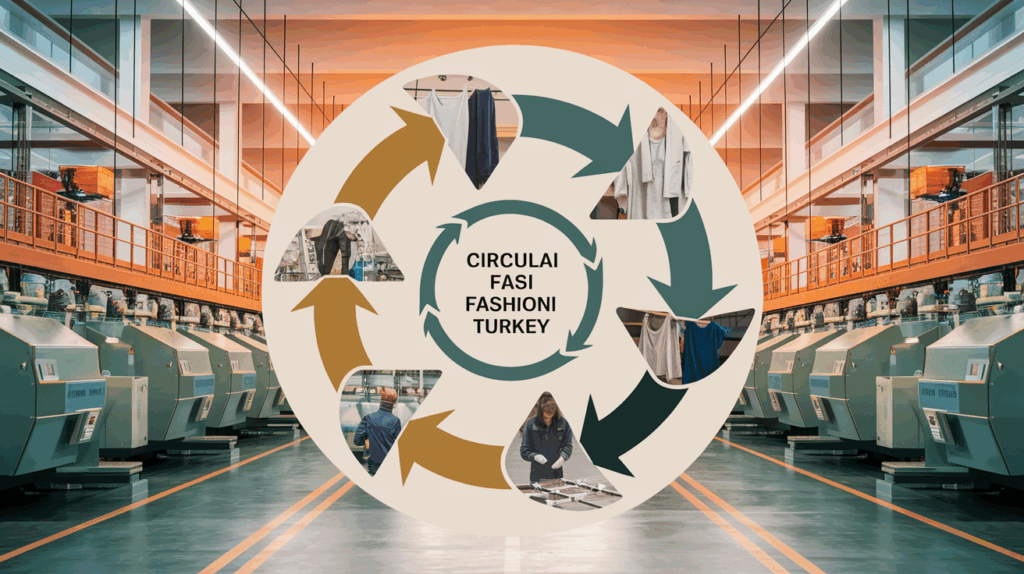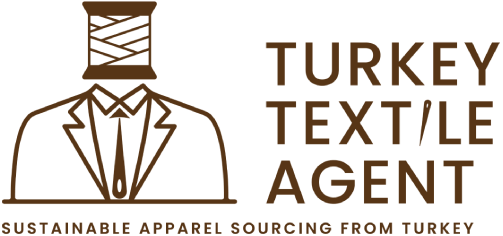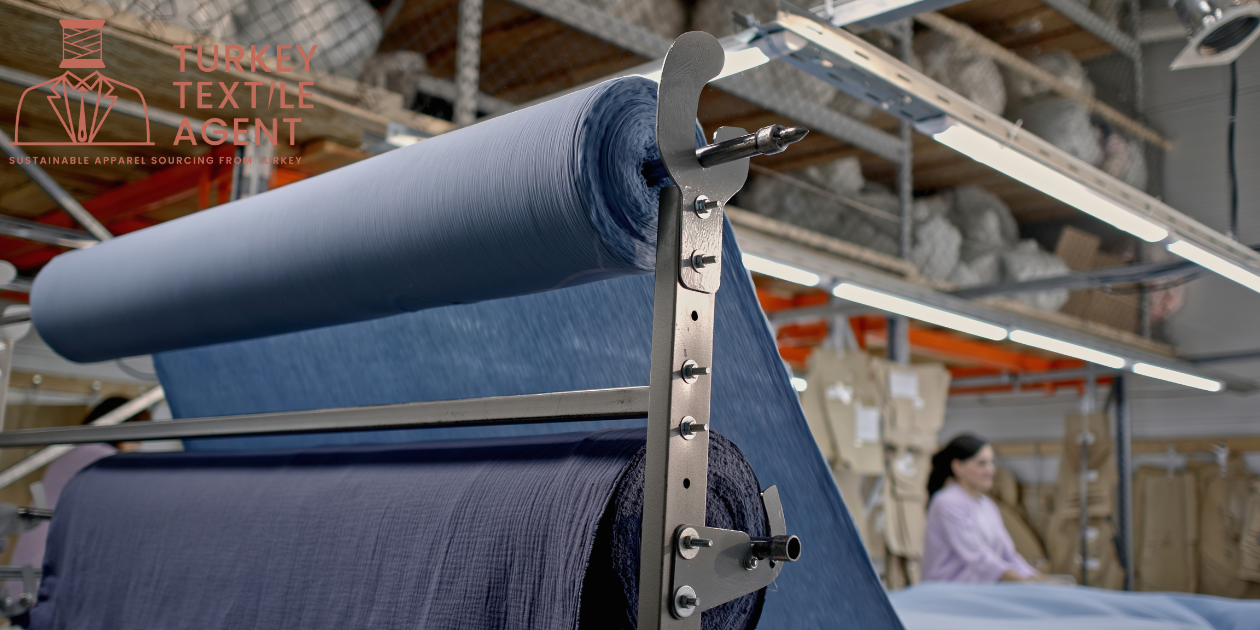Introduction to Turkish Fashion Sourcing
Turkish fashion sourcing has rapidly emerged as a pivotal strategy for global fashion brands seeking cost-efficiency, speed to market, and uncompromising quality. With its unique geographic location bridging Europe and Asia, Turkey offers a strategic sourcing advantage that enables brands to access a wide array of materials, skilled labor, and innovative textile technologies.
Over the past decade, fashion companies ranging from fast fashion to luxury labels have tapped into Turkey’s textile and apparel ecosystem to streamline their operations, reduce lead times, and scale sustainably. This article explores how brands can harness the full potential of Turkish fashion sourcing to elevate their competitiveness and drive long-term profitability.
Why Turkey Leads in Global Textile and Apparel Production

Strategic Geographic Advantage
Turkey’s location enables seamless export logistics to Europe, the Middle East, and North Africa. With over 25 seaports and advanced land transport infrastructure, deliveries from Turkish factories reach European markets within 3–7 days, unlike counterparts in Asia that require several weeks.
Vertically Integrated Supply Chains
The strength of Turkish fashion sourcing lies in its vertically integrated model. From cotton cultivation to spinning, dyeing, weaving, printing, and finished garments, all processes occur domestically. This ensures:
- Faster production cycles
- Improved quality control
- Transparent supply chain management
Sustainable Textile Practices
As sustainability becomes a non-negotiable standard in fashion, Turkey leads with Oeko-Tex®, GOTS, and Better Cotton Initiative (BCI) certified manufacturers. Turkish mills invest heavily in:
- Water-saving dyeing technology
- Solar energy integration
- Eco-conscious waste management
Categories Dominating Turkish Fashion Sourcing
1. Ready-to-Wear Apparel
Turkey is a powerhouse in ready-made garments, including:
- Casualwear (T-shirts, jeans, knitwear)
- Formalwear (suits, blazers, dresses)
- Athleisure and sportswear
Top brands like Zara, H&M, and Mango rely heavily on Turkish manufacturers for quality and speed.
2. Denim and Jeans Manufacturing
With over 500 specialized denim factories, Turkey is Europe’s leading jeans exporter. Turkish denim features:
- Laser finishing
- Organic indigo dyeing
- High-stretch fabric innovations
3. Technical Textiles and Activewear
Turkey has made strides in technical textiles, especially in:
- Moisture-wicking fabrics
- UV protection garments
- Compression sportswear
Brands focused on performance-driven fashion find Turkish sourcing ideal due to rapid innovation adoption.
Benefits of Partnering with Turkish Fashion Suppliers
Shorter Lead Times and Speed to Market
Turkey’s textile sector is structured for agility. Compared to China or Bangladesh, Turkey can fulfill orders in half the time, helping brands react faster to:
- Seasonal trends
- Runway inspirations
- Unexpected demand surges
Flexible MOQs (Minimum Order Quantities)
Turkish suppliers are renowned for low minimum order quantities, enabling startups and niche brands to enter the market without high capital risk.
High-End Craftsmanship
With centuries-old traditions in weaving, embroidery, and tailoring, Turkish artisans deliver intricate details and premium finishes that appeal to upscale markets.
European Quality Standards Compliance
Turkey’s alignment with EU standards ensures compliance in:
- Labor practices
- Product safety
- Environmental regulations
This reduces risk for Western brands and enhances consumer trust.
How to Build Strong Supplier Relationships in Turkey
Attend Major Trade Shows
To initiate partnerships, we recommend visiting key textile expos such as:
- Istanbul Fashion Connection (IFCO)
- Texhibition Istanbul
- Première Vision Istanbul
These events provide access to thousands of vetted suppliers.
Utilize a Local Sourcing Agent
Partnering with a Turkey-based textile agent simplifies communication, ensures quality control, and prevents cultural misunderstandings. Agents provide:
- Factory vetting
- Sample handling
- Production oversight
- Negotiation on behalf of clients
Visit Factories Personally
For long-term collaborations, we advise in-person factory visits to evaluate:
- Workforce conditions
- Machinery capabilities
- Inventory control systems
Such visits strengthen trust and enhance transparency.
Challenges and How to Overcome Them
Language Barriers
Although many Turkish suppliers speak English, miscommunication can occur. Using bilingual agents or hiring a local interpreter mitigates this risk.
Import Duties and Tariffs
While Turkey has a Customs Union Agreement with the EU, brands outside Europe should consult with logistics partners on applicable tariffs and customs paperwork.
Lead Time Fluctuations
While Turkey is fast, holidays like Bayram can affect production schedules. Planning orders ahead of such dates is critical to maintain timelines.
Future of Turkish Fashion Sourcing in 2025 and Beyond

Investments in Smart Factories
Many Turkish suppliers are transitioning toward Industry 4.0, utilizing:
- AI for demand forecasting
- Automated cutting machines
- Blockchain for supply chain transparency
Increased Nearshoring by Global Brands
With geopolitical risks in Asia and pressure to reduce carbon footprints, major retailers are shifting more production to Turkey.
Focus on Circular Fashion
Turkey is also pioneering circularity in fashion by:
- Collecting post-consumer textiles
- Recycling yarns
- Launching closed-loop production lines
Tips for Effective Turkish Fashion Sourcing Strategy
- Start with a detailed tech pack to avoid production errors.
- Request samples and lab dips before finalizing bulk orders.
- Negotiate flexible payment terms to build long-term trust.
- Use third-party QA firms for pre-shipment inspections.
- Build multi-supplier networks to avoid dependency.
Success Stories of Brands Leveraging Turkish Fashion Sourcing
Case 1: European Streetwear Brand
A UK-based streetwear label reduced its lead times by 60% and increased margins by 22% after shifting production to Istanbul-based manufacturers.
Case 2: US Eco Fashion Startup
A startup brand focused on sustainable yoga wear partnered with GOTS-certified Turkish mills, allowing them to launch a fully organic collection and get featured in Vogue within six months.
Case 3: Luxury Boutique Retailer
A Scandinavian boutique transitioned to custom-made Turkish ateliers, giving them exclusive designs and faster market entry compared to Italian production.

